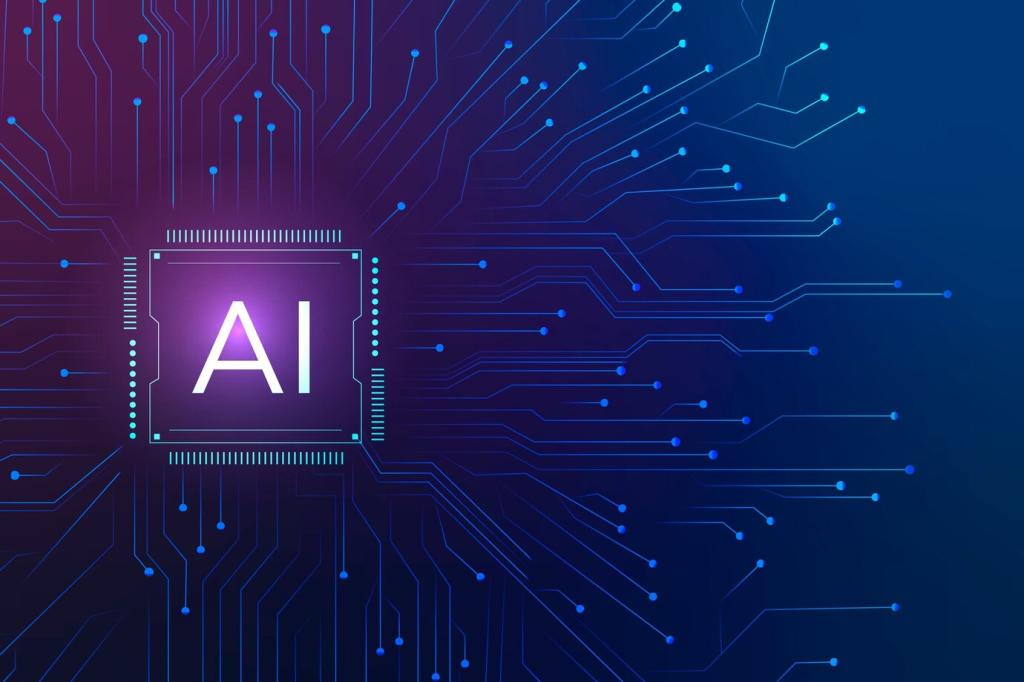Impact of Artificial Intelligence on Personal Lifestyle in 2025
In 2025, artificial intelligence has become an inseparable part of daily living, fundamentally transforming the way people interact with technology, manage their well-being, and make decisions. The integration of AI-powered solutions across various aspects of life continues to shape behaviors, enhance productivity, and redefine what is possible in personal experiences. This comprehensive exploration delves into how AI impacts lifestyle domains, ranging from health and home management to entertainment and ethical considerations, providing an insightful overview of the profound changes AI brings to modern life.
Revolutionizing Personal Health and Wellness
AI-powered wearables and smartphone applications provide continuous health tracking, analyzing metrics such as heart rate, sleep patterns, and activity levels. These devices use sophisticated algorithms to detect anomalies, offer actionable recommendations, and alert users to potential health issues before they escalate. By synthesizing vast amounts of personal data, AI allows for highly individualized health plans, which contribute to early prevention and more effective self-care, fundamentally shifting the focus from reactive treatment to proactive wellness.
Digital assistants driven by artificial intelligence have become pivotal in helping individuals manage medications, schedule appointments, and address common medical concerns. These AI agents can answer routine health questions, remind users about preventive check-ups, and even evaluate symptoms with impressive accuracy. As these virtual assistants are available around the clock, they democratize access to health information and ensure that individuals receive consistent support regardless of their location or time constraints.
AI’s role in mental health has expanded with tools that detect mood shifts through speech and text analysis, offering timely advice or connecting users to professionals if needed. Applications now provide guided meditation, stress reduction exercises, and cognitive behavioral therapy programs tailored to individual needs. The availability of these resources at any time empowers users to manage stress, monitor mental well-being, and seek help discreetly, making emotional support more accessible and personalized than ever before.
Smart Homes: Redefining Daily Comfort
Intelligent Environmental Controls
AI-managed systems now oversee heating, cooling, lighting, and ventilation, studying residents’ behaviors to maintain ideal conditions throughout the day. These systems automatically adjust settings based on occupancy, weather conditions, or personal preferences, often without direct human input. As a result, energy consumption drops and comfort levels rise, allowing individuals to enjoy spaces that feel uniquely attuned to their lifestyles, while also supporting sustainable living.
AI-Enhanced Home Security
Security solutions powered by artificial intelligence use facial and behavioral recognition to distinguish between residents, guests, and intruders. Cameras and sensors, guided by machine learning, alert homeowners to suspicious activity, unlock doors for verified faces, or even call emergency services autonomously when a problem is detected. This high level of automation fosters peace of mind, providing robust protection while reducing the need for manual monitoring or intervention.
Personalized Home Assistance
Virtual home assistants have become central to managing daily chores and schedules, from setting reminders to controlling appliances. These AI systems can order groceries, coordinate cleaning robots, or prepare a morning routine based on calendar events. Through conversation and proactive suggestions, they learn the unique preferences of household members, ensuring that assistance feels both natural and individualized, freeing up valuable time for more meaningful activities.
Transportation: The Era of Smart Mobility
Self-driving cars and public transport, empowered by advanced AI, prioritize passenger comfort, safety, and efficiency. These vehicles analyze traffic patterns, real-time road conditions, and even rider preferences to select optimal routes and driving behaviors. For many, commuting has become a time to rest or work, as the technology eliminates the stresses of navigation and traffic, offering an unprecedented degree of freedom and productivity during travel.

Previous slide
Next slide

Shopping and Personal Finance in the Age of AI
Hyper-Personalized Shopping
E-commerce platforms leverage sophisticated AI to understand user preferences, browsing history, and social influence, curating product recommendations that are precisely aligned with individual tastes. Shoppers receive timely alerts for price drops, product launches, or exclusive promotions, enhancing engagement and satisfaction. This degree of personalization transforms browsing into a dynamic, enjoyable process and reduces time spent searching for ideal purchases, ensuring consumers always find what suits them best.
AI-Driven Financial Advisors
Digital financial advisors, powered by artificial intelligence, now help users budget, invest, and plan for the future with remarkable sophistication. These platforms continuously analyze spending patterns, predict potential risks, and suggest strategies to optimize savings and asset growth. Offering real-time alerts and recommendations, they enable users to stay ahead of financial challenges, promoting stability and empowering smarter choices tailored to long-term goals.
Enhanced Transaction Security
With the proliferation of digital transactions, AI safeguards personal finance through advanced fraud detection, biometric authentication, and encrypted payment processes. Algorithms monitor for unusual activity, verify identities rapidly, and intervene in real time to prevent financial theft or scams. These measures provide peace of mind for users, ensuring that their financial data and transactions remain protected, while fostering trust in digital commerce and banking systems.

Entertainment and Leisure: Enriching Free Time
Streaming platforms and digital libraries utilize AI algorithms to analyze viewing habits and suggest movies, music, or books tailored specifically to each user. By recognizing patterns and anticipating preferences, these systems ensure a steady supply of engaging content, often introducing users to new genres or creators they might not have otherwise discovered. The result is a continuously refreshed and deeply satisfying entertainment ecosystem designed for maximum personal enjoyment.
Previous
Next
